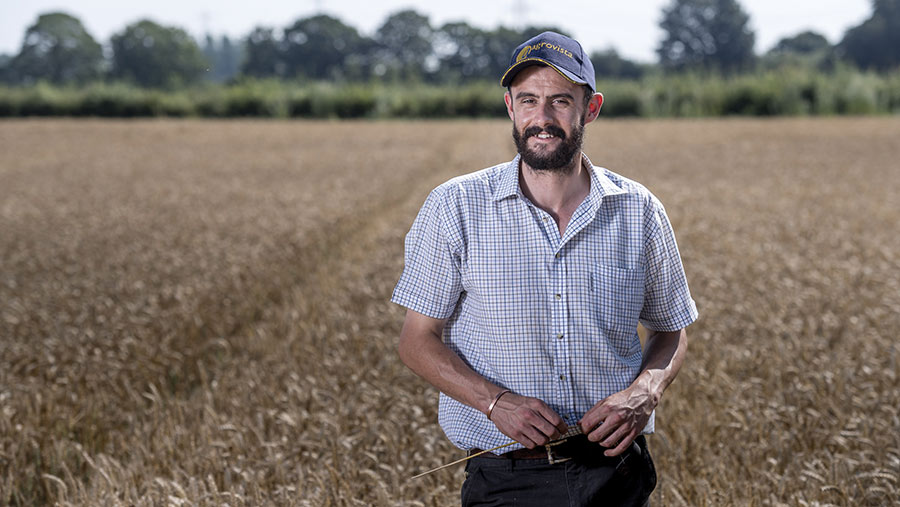Josh Wright: Cultivation swap should bring welcome cost cuts
 © Jim Varney
© Jim Varney Harvest has begun in West Yorkshire. We have managed to get the winter barley cut and sent on its way at a decent price.
It won’t break any pots, but I can’t complain as I am in a better position than a lot across the country who never managed to get any winter crops in the ground due to the poor weather.
We still have the wheat and the spring barley to cut, but the weather is being pretty kind to us at the moment so fingers crossed that this continues.
See also: Josh Wright – Government’s development message is muddled
Our sights will soon be focusing on cultivations and, after a few interesting conversations with the agronomist, we are looking at changing our methods this year.
Better soil management
I like to think we farm with equipment that is reflective of the size of the farm and that our machinery costs are similarly reflective. Even though our cultivation methods are subsoiler, plough, combi drill.
Although cost is a massive driving force in changing cultivation method, soil health is an equally important reason. Our soil is pretty light and fluffy and a seed-bed can be made pretty easily without being so invasive.
Soil health is high on the agenda at the moment, and if managing the soil we are responsible for in a better way saves a little bit of money along the road, then it’s a no-brainer.
I estimate that currently getting the crop in the ground is costing around the £90/ha mark; by swapping to a culti-press/combi-drill cultivation method, I reckon costs will be reduced by £40 to about £50/ha.
With margins so tight, any savings are welcome, and machinery costs are often overlooked.
I also think that a lot of farms don’t actually know their machinery costs and wouldn’t notice whether or not they could save on establishing crops at all.
I do sometimes wonder if machinery is bought on how shiny the paintwork is and if it’s better than the neighbour’s, rather than what is right for the bank balance, efficiency or soil/crop health.
Hopefully, this autumn won’t be as wet as the previous one and we can all get our crops in the ground using whatever method we choose.
I know this much, though: if this year is any wetter than the last, we won’t be investing in any cultivating equipment – it’ll be boats we are buying.
